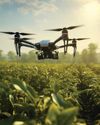There is a remarkable increase in the level of awareness about the way food is produced, stored, transported, preserved, cooked, and consumed.

Each stage is immensely vital and cannot be ignored at any cost. The consumers want to know about the place of origin of the food that they eat in addition to several other points of concern. Buying meat is a daily activity and requires knowledge and information. The focus of this article is on the everyday challenges faced by a consumer while buying meat at the market.
India is a country of 1.3 billion people. A survey was undertaken by the Sample Registration System (SRS) in 2014 reported that Indians, especially of the ever so growing middle class, are non-vegetarians. The survey also stated that India’s meat market is valued at approximately $30 billion with an annual growth of 20-25 percent. Thus, statistics make it even more necessary that consumers need to be aware of the risks and the ways to avoid those risks while buying the best quality meat. Consumers are facing lots of challenges while selecting meat for their consumption; some of the main challenges faced by consumers are listed below:
Unorganized Market
The large part of the meat market is still unorganized
Indian meat markets are largely operated in traditional ways. A considerable percentage of consumers still buy their meat from wet markets. The bazaars, local butchers, makeshift shops and mandis are still abuzz with meat vendors catering to the highly demanding consumer-base of meat eaters. This unorganized market has a huge potential to bring in changes to provide better meat to consumers. However, currently, the handling, hygiene, and storage still remain questionable in terms of quality. Contaminated meat with no warnings can be spotted at these markets because of the lack of scrutiny. Therefore, the chances of risks increase when meat is being purchased from this unorganized market.
Hygiene is not on the Menu
Serious trouble with hygiene and handling of the meat
This story is from the {{IssueName}} edition of {{MagazineName}}.
Start your 7-day Magzter GOLD free trial to access thousands of curated premium stories, and 9,000+ magazines and newspapers.
Already a subscriber ? Sign In
This story is from the {{IssueName}} edition of {{MagazineName}}.
Start your 7-day Magzter GOLD free trial to access thousands of curated premium stories, and 9,000+ magazines and newspapers.
Already a subscriber? Sign In

Avocados: Health Benefits And Sustainable Cultivation
ATTRACTIVE GROWTH SEGMENT - In only a few years, the avocado has developed from being a rather a and has become an integral part of modern cuisine and in restaurants throughout Europe and beyond.

UFlex to Showcase Innovative and Sustainable Printing and Packaging solutions at DRUPA 2024
U Flex Limited, India's largest multinational flexible packaging and solutions company, is participating in DRUPA 2024, the premier global trade fair for print and packaging innovations, scheduled to take place in Dusseldorf, Germany from March 28 to June 7, 2024.

Hubergroup and Manroland Goss unite for Sustainable Packaging Innovation
Hubergroup, a global specialist in and chemicals, has partnered with manroland Goss web systems, a leading provider of web offset printing solutions, in a strategic collaboration.

Technological Advancements in the Premium Flavour, Extract and Concentrate Industry
Food Marketing & Technology Magazine had the privilege of hosting the fourth edition of their business webinar on “Technological Advancements in the Premium Flavour, Extract and Concentrate Industry” with Paul Ahn, Global Sales Manager, Flavourtech.

Flavourtech's Origins: From Wine to Worldwide Flavor Solutions
LEON SKALIOTIS, CEO of Flavourtech - Discover how Flavourtech, founded over 40 years ago by an innovative winemaker in Australia, evolved from addressing grape juice desulphiting to revolutionizing flavor extraction and concentration across various industries.

How CPG Companies Can Adopt Better Sustainable Packaging Practices in 2024
Sustainability has gone mainstream. With more switching to consumers environmentally friendly brands, it's become a central theme across all industries.

The Evolution of the Protein Value Chain Sustainable Protein Systems for a Growing World
As the world's population is on course to surpass ten billion by 2050, our food systems face the challenge of providing sustainable nutrition without further harming harming the planet. Animal-based diets and the reliance on animal-derived proteins are significant contributors to environmental degradation and public health issues. Not only is the global population increasing, but the expanding middle class in developing nations is driving a surge in protein demand, intensifying the strain on our environment.

Implementing the Technological Intelligence in Agricultural Produce
It is estimated that by 2050 the I world's population will be around 10 billion. From employment generation to contribution to National Income, agriculture is important to all of us as agricultural produce is the core on which we survive. It contributes a significant portion to the economic prosperity of the developed nations and plays an active part in the economy of the developing countries as well.

Cocoa Crises: A Sweet Industry's Bitter Challenge
As a pastry chef and entrepreneur running a small-scale baking business, I have always believed in the magic of cocoa. From the velvety richness of couverture chocolate to the deep, earthy notes of cocoa powder to the creamy allure of cocoa butter, these ingredients are the essence of our creations.

Ethylene Oxide (ETO) Detection in Ready-Made Spice Mixes: Ensuring Food Safety
INTRODUCTION - In the world of culinary delights, ready-made spice mixes hold a cherished place, adding convenience and flavour to countless dishes. However, recent concerns over food safety have brought to light the presence of ethylene oxide (ETO) in some of these products.